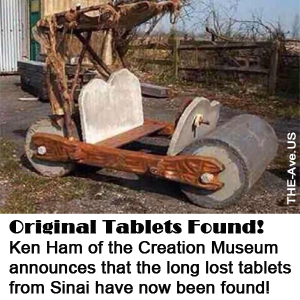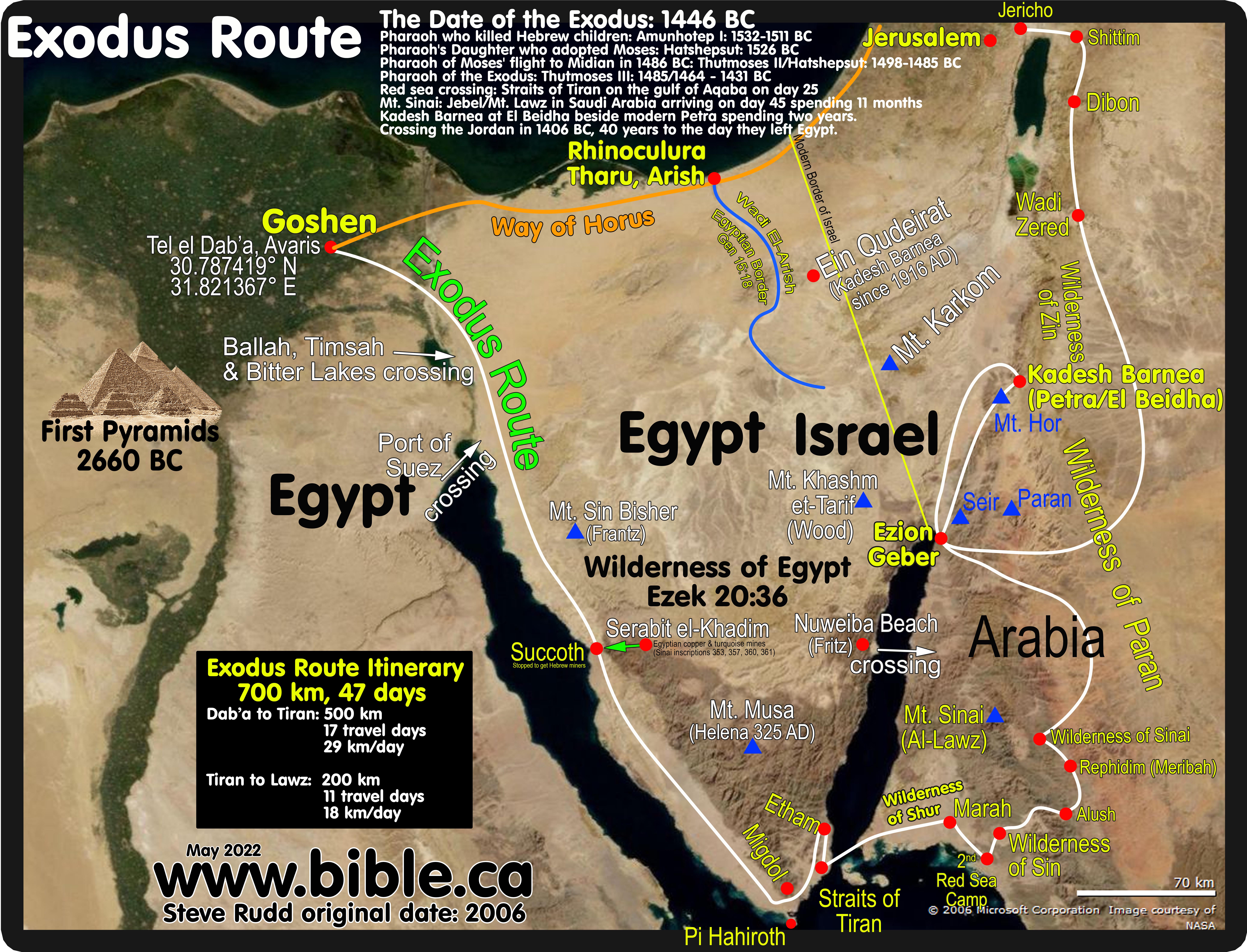 A team of archaeologists excavating in a mound near the northern Sinai were expecting to find evidence of the Hebrews trek from Egypt under Moses. THE-Ave.US (TA News, Seattle) has received an exclusive pres release from the Creation Museum of Kentucky and the Lemay Car Museum in Tacoma, Washington.
A team of archaeologists excavating in a mound near the northern Sinai were expecting to find evidence of the Hebrews trek from Egypt under Moses. THE-Ave.US (TA News, Seattle) has received an exclusive pres release from the Creation Museum of Kentucky and the Lemay Car Museum in Tacoma, Washington.
Ken Ham, Director of the Creation Museum that funded the Bir el ‘Abd exhibition congratulated Professor Yashu ibn Yosip on the “Discovery the Proves The Bible.” Mr, Ham explained,
“The excavation site is itself a surprise as the Torah seems to say that the Hebrews ended their trek well to the East, entering what is now Jordan. at Kadesh in the northern Sinai.
at Kadesh in the northern Sinai.
Based on the Creation Museum’s analysis of the text, after receiving the tablets at an as yet unknown place in the Sinai, the Hebrews spent 11 months, 5 days at Sinai before moving north to Kadesh.
This would place the camp where Moses brought the tablets not at the foot of Mt. Sinai, but were some distance away. “let them be ready for the third day, for on the third day the Lord will come down on Mount Sinai in the sight of all the people. You shall set bounds for the people all around, saying, ‘Beware Exodus 19:11-12
However, Professor Yashu ibn Yosip and his team of Creation Museum scientists reasoned that the 2.5 million Hebrews would have used the full resources of the Sinai. This would include the coastal highway likely to be vacant of Egyptian patrols after the catastrophe suffered by the Pharaoh’s army at the Red Sea crossing.
The bible directly suggests this, saying that “the Hebrews stood at a distance, while Moses approached the thick cloud where God was.” Exodus 20:21 So the Hebrew camp in the wilderness of Sinai was likely 5-10 km due east from the foot of the mountain.
 But, how did the Hebrews get the materials they needed to transport these precious tablets? Wouldn’t they have raided the Egyptian town of Bir el ‘Abd controlling the coastal highway ? The leader of our team, Professor Yashu ibn Yosip had grown in the town and remembered a mound, Tel Musa, that had played a prominent role in the battle of Bir El Abd .. again because of the strategic location during WWI. ”
But, how did the Hebrews get the materials they needed to transport these precious tablets? Wouldn’t they have raided the Egyptian town of Bir el ‘Abd controlling the coastal highway ? The leader of our team, Professor Yashu ibn Yosip had grown in the town and remembered a mound, Tel Musa, that had played a prominent role in the battle of Bir El Abd .. again because of the strategic location during WWI. ”